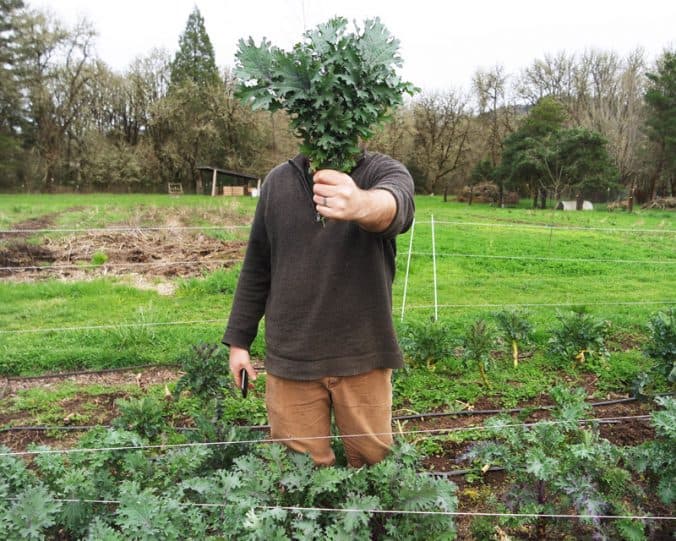The 2018 Rye Ramble – What is up with so-called Public Plant Breeding?
Why are public plant breeders releasing most of their breeding work privately, as patented or protected? Should we still call it public plant breeding?
In previous Rye Rambles, I have called out the bad behavior of corporate seed companies patenting seed and breeding hybrids with new techniques that make it nearly impossible to save seeds. This year I have been thinking about my friends in the public plant breeding sector, university plant breeders that have a long history of doing good work and fighting the good fight for the public. In recent years their situation has changed and become less public plant breeding and more privatized.
I get super excited when they release a new variety into the public domain. However, the reason I get excited is because it is now a rare event and these public plant breeders must fight and sacrifice for this privilege. University administrators have increasingly required the use of utility patents and Plant Variety Protection (PVP) for new releases, and/or they impose royalties and Material Transfer Agreements (MTAs). All of these tactics restrict their use. Here are a few related questions stuck in my craw.
• Why are the so-called “public” plant breeders releasing most of their breeding work privately, as patented or protected?
• Why are so-called “private” independent plant breeders releasing their varieties to the public domain?
• Should university plant breeders be called public breeders if and only if they release all their varieties to the public domain?
• Should we be called public plant breeders and they be called the private plant breeders?
It is always good to define our terms. So let’s get this party started.
What does it mean to be public? The term comes from Latin meaning “the people as a whole.” The word when applied to public plant breeding means that the work is paid for, at least partly, with public tax dollars and the result is accessible to, or the ownership is shared by, all members of the public. This is the same idea behind public radio stations and watershed councils. Conversely, the term private means “not the people as a whole.” Simple right? Unfortunately it quickly gets complicated from here and humans like to oversimplify complicated things. I believe this is where many of our problems arise.
Who should pay for what? Who owns it? Who is entitled to what? Who deserves it? These questions are not easily answered and may not have answers. Mostly it seems like people just make up answers to these questions that suit their shallow self-interest
University administrators will let you know that just because they get public funding doesn’t mean they have to release their products publicly. But to me this sounds like a cartel stealing a natural/cultural resource owned by “the people as a whole” and making it an asset for a private few. The real problem is that they and their corporate cousins are essentially privatizing the future, by preventing us and our descendants from having the same resources they had. With each patent they are creating little monopolies everywhere. They euphemistically call what they are doing plant breeder rights, but these so-called plant breeder rights are more like institutionalized piracy.
Red Evolution Lettuce, an Open Source Variety
Lately there have been two ping-pong ball like ideas bouncing around in my head that call into question the whole facade of the artificial ownership of seed. These ideas are contrary to the current legal status quo but they seem more true to reality.
• True intellectual private property does exist, but it only exists privately in one’s mind for as long as it stays private. Once ideas become public they are no longer private property. Your ideas are yours up until the point you share them.
• When ideas interact with pre-existing things and manifest as new things, like new varieties of seeds, they are no longer ideas. They are physical things in public. Physical things cannot be intellectual property, because only private ideas can be intellectual property.
I don’t know where these ideas take us in the end but it might be somewhere radical. One of the places it takes me is to the Open Source Seed Initiative (OSSI). In the next few years I am going to have the privilege of working more closely with OSSI. One of my goals is to bring more independent and homestead plant breeders into the OSSI fold. I hope we grow the movement. I know there are a lot of quiet plant breeders out there that would love to share their germplasm and stories. Maybe even some stifled university (public?) plant breeders that want to dive deeper into public domain plant breeding will join us.
The Open Source Seed Initiative is not a movement, it is an exorcist.
I can only hope that ideas like these and projects like the OSSI will result in an exodus out of the current situation. Some people want to reform the current system but I have little hope that this will work. Helping to build a new voluntary system based on sharing and collaboration would be much more fun anyway. Sometimes it is best to let the old house rot and fall down. Reform movements tend to get a few things done and then either fizzle or reduce in complexity over time. Our true goal is to increase complexity over time. As Wendell Berry writes,
People in movements too readily learn to deny the rights and privileges they demand for themselves. They often become too specialized, as if finally they cannot help taking refuge in the pinhole vision of the institutional intellectuals. They almost always fail to be radical enough, dealing finally with effects rather than causes. Or they deal with single issues or single solutions, as if to assure themselves that they will not be radical enough.
I am excited for the future of independent plant breeding, as we shine new light on the huge amount of sharing and collaboration that has always been present in plant breeding. OSSI is only a tool of a grassroots phenomenon and it isn’t a movement in itself but an exorcist-like idea, removing the demon of genetic piracy everywhere it goes. It is up to us to do the plant breeding and then share, share, share. OSSI encourages complexity by forbidding monopoly and it is up to all of us seed stewards to produce that complexity.
We shall democratize, diversify and decentralize. Otherwise resilience will disappear, innovation will slow down and the seed economy will become stiff and fragile. We shall leave the monopolist dinosaurs of the past to fossilize into history.
One way we could describe the task ahead is by saying that we need to enlarge the consciousness and the conscience of the economy…. This is revolutionary, of course, if you have a taste for revolution, but it is also common sense.
– Wendell Berry, In Distrust of Movements (1999).
Andrew Still; November 2017
What is up with so-called Public Plant Breeding? was first published in the Adaptive Seeds 2018 seed catalog.


Leave a Reply